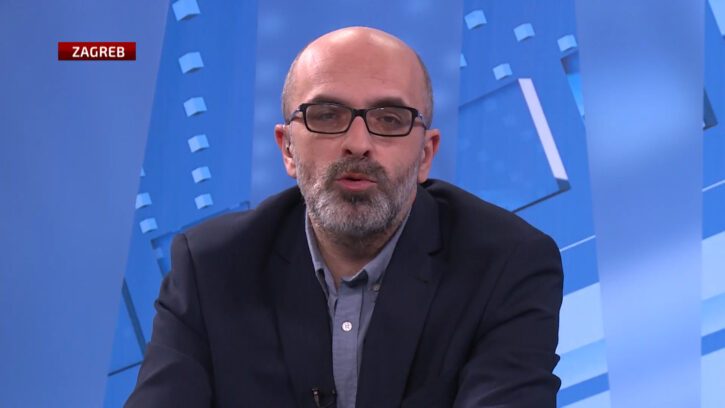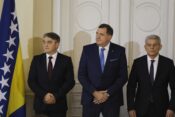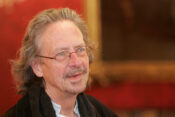
Bestowing the Nobel Prize for literature upon Austrian writer Peter Handke, a supporter of late Serbian strongman Slobodan Milosevic and a denier of the Srebrenica genocide, represents a "moral debacle," Bosnian Croat writer and journalist Ivica Djikic told N1 on Wednesday, expressing hope that the “mistake” will be fixed.
“My deep belief, which others do not have to share, is that the Nobel Prize Committee made a grave mistake when it gave such an award to a writer such as Peter Handke, not because he is a bad writer, but because there are books in his literary work which disqualify him,” Djikic said.
Handke’s engagement was steered toward “relativising the crimes and the evil which Slobodan Milosevic committed on the territory of Bosnia and Herzegovina, Croatia and Kosovo,” he said.
The Bosnian Croat writer said he does not believe it is likely that the Swedish Academy will retract its decision. The West has double standards when it comes to grave crimes such as the Holocaust and the genocide in Srebrenica, he argued.
“Europe and Western culture do not have the same criteria when speaking of victims of different nationalities or religions. The Srebrenica Genocide is not understood in the West in the same way the Holocaust is,” he said, calling it the “moral debacle of the West.”
The reactions show how wrong the decision was in the best way, Djikic argued.
“If an award which was thought up as one given out for literary work and esthetic achievements in literature which is set separately above the average turns into bickering between one side and the other, then there is no better evidence for the decision being very wrong,” he said.
For Djikic, Handke has “a fictional image of the Balkans.”
“I believe that this is partly due to intellectual laziness and lack of wish to search for facts. On the other hand, at one moment he began feeling flattered and felt good about the attention Slobodan Milosevic’s regime gave him and we can see that has not changed even today.
“He headed down the wrong path and was encouraged by the praises coming from Belgrade,” he added.
Djikic has spent time researching the 1995 Srebrenica Genocide in the past.
“All of those people had some personal justification for why they were killing people who could not defend themselves and why they wished to eradicate Bosniaks from that part of Bosnia and Herzegovina,” he said.
He explained that those perpetrators were all different people and that their motives for doing what they did cannot be brought down to the same thing – “except the hatred which was very present.”
“I think some of those people were doing it because they were tasked with it, they wanted to prove themselves,” he said.
Without everyone admitting the atrocities they committed, there will be no peace, Djikic stressed.
“There is no peace and no prosperity or future without the political, religious and national elites from all of the countries that took part in the war confronting the evil among their ranks,” he said, adding that without that, “talk about evil among others is unconvincing and has no meaning.”







